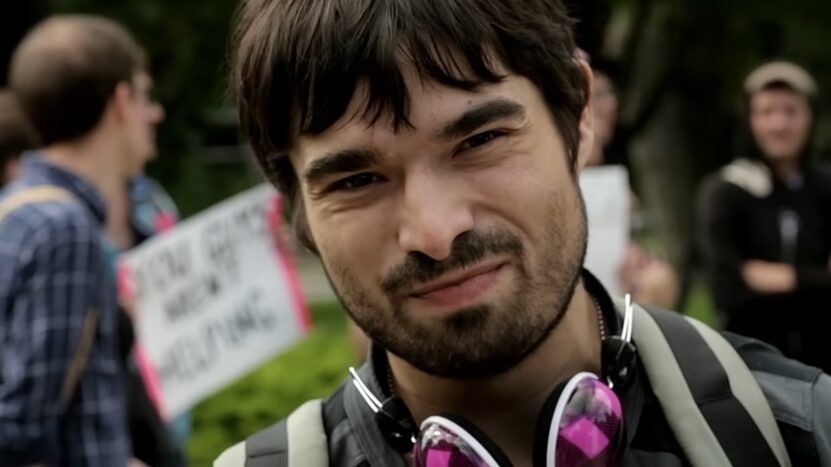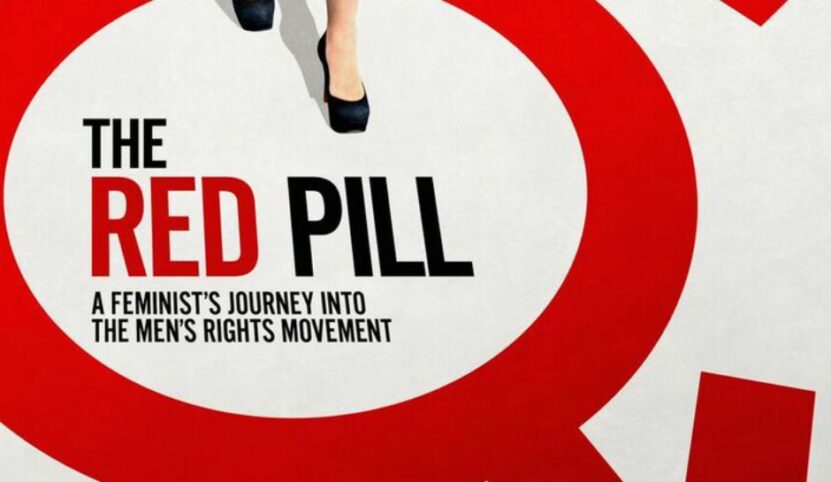The documentary film ‘The Red Pill’ emerged as a game changer in the men’s rights movement, sparking heated debates and discussions around the globe. Directed by Cassie Jaye, a feminist filmmaker, the documentary takes an unbiased and comprehensive look into the issues faced by men and the men’s rights activists (MRAs) fighting for their cause.
The title itself is derived from the famous scene in the movie ‘The Matrix,’ where taking the red pill symbolizes seeing the hidden and often uncomfortable truth.
In this article, we will take a deep dive into the documentary, explore its impact, and examine the reactions it generated among various groups. We will provide detailed analysis of this important work, so buckle up and get ready to dive into the world of ‘The Red Pill.’
While the “Red Pill” documentary provides a thought-provoking perspective on men’s rights, those seeking a different genre of entertainment might enjoy exploring a certain collection of films featuring a renowned Hollywood actor, readily available for streaming.
Background and Production
In 2013, Cassie Jaye, an award-winning documentary filmmaker, decided to explore the world of the men’s rights movement. Initially, she approached the subject as a feminist with preconceived notions about MRAs, assuming they were misogynistic and against women’s rights.
However, as she interviewed prominent MRAs and delved deeper into the movement, her perspective shifted dramatically.
Jaye funded the project through a Kickstarter campaign, which raised over $211,000. Despite facing backlash and multiple theaters canceling the screenings due to protests, the documentary went on to gain critical acclaim and a substantial following.

The Issues Explored
‘The Red Pill’ covers various topics related to men’s rights, such as:
1. Father’s rights
The documentary highlights the systemic bias against fathers in family courts, where they are often denied equal custody rights and face financial burdens through excessive child support and alimony payments.
2. Male disposability
The film discusses the expectation for men to take on dangerous jobs and the higher workplace fatality rate among men. It also addresses the lack of attention given to male victims of domestic violence and sexual assault.
3. Suicide rates
The film explores the significantly higher suicide rate among men, touching upon the societal pressures and lack of support systems that contribute to this tragic statistic.
4. Circumcision
The documentary delves into the controversial topic of male circumcision, questioning the ethics and necessity of the practice.
5. Education
The film examines the gender gap in education, where boys consistently underperform compared to girls, and the need for reforms to address this issue.
The Impact of ‘The Red Pill’

The documentary’s release in 2016 was met with strong reactions, both positive and negative. Let’s take a look at its impact:
Raising Awareness
‘The Red Pill’ succeeded in raising awareness about men’s rights issues, which are often overlooked in mainstream media and conversations about gender equality. The film provided a platform for MRAs to share their concerns and advocate for change.
Bridging the Gap
The documentary encouraged conversations between feminists and MRAs, highlighting that the fight for gender equality should include addressing the challenges faced by both men and women. The film demonstrated that these two groups could work together to achieve a more equitable society.
Controversy
‘The Red Pill’ faced backlash from various groups, with some accusing the film of promoting misogyny and anti-feminist rhetoric. Critics argued that the documentary cherry-picked data and misrepresented certain issues.
Personal Transformation
Jaye’s personal journey throughout the documentary resonated with many viewers, who appreciated her willingness to challenge her own beliefs and remain open to new perspectives.
Reactions to the Documentary

The Red Pill’s release elicited polarizing reactions from different groups:
Feminist Response
Many feminists criticized the film for its portrayal of MRAs, arguing that it gave a platform to misogynistic ideas and downplayed the importance of women’s rights. However, some feminists acknowledged the validity of certain men’s rights issues and recognized the need for a more inclusive conversation on gender equality.
Men’s Rights Activists
The MRA community largely praised ‘The Red Pill’ for shedding light on their movement and presenting their concerns in a fair and unbiased manner. They appreciated the film’s ability to spark conversations and break down misconceptions about MRAs.
General Public
The public’s response to the documentary was varied, with some viewers applauding its courage to tackle controversial subjects, while others dismissed it as biased and anti-feminist. The film’s thought-provoking nature inspired many to reassess their own beliefs and engage in conversations about gender equality.
Academia and Experts
Some experts praised the documentary for raising awareness of men’s issues and encouraging a more inclusive discourse on gender equality. However, others criticized the film for using selective data and presenting a skewed view of certain topics, such as domestic violence and rape.
Deeper Analysis of ‘The Red Pill’
As we delve further into the documentary, it is crucial to examine its structure and methodology, as well as the specific issues that have resonated with audiences.
Structure and Methodology
Cassie Jaye structured ‘The Red Pill’ as a personal journey, presenting her own transformation as she explored the world of the men’s rights movement. This approach lent a sense of authenticity and relatability to the film, allowing viewers to join her as she questioned her preconceptions and discovered new perspectives.
Jaye interviewed several key figures in the men’s rights movement, such as Paul Elam, founder of A Voice for Men, and Warren Farrell, author of “The Myth of Male Power.” By allowing these activists to share their insights and experiences, the film offered a comprehensive and balanced look at the issues they were advocating for.
However, critics argued that Jaye’s methodology was flawed, as the documentary sometimes relied on anecdotal evidence and selectively presented data to support the MRA viewpoint. They also claimed that Jaye’s personal transformation narrative overshadowed the broader discussion of men’s rights issues, making the film more about her journey than the movement itself.
Resonating Issues

Several topics in ‘The Red Pill’ have resonated with viewers and sparked important conversations about men’s rights:
1. False Accusations
The documentary sheds light on the devastating consequences of false accusations of rape and sexual assault on men’s lives, highlighting the need for a fair and unbiased judicial process that protects both the accuser and the accused.
2. Selective Service
The film touches on the topic of the Selective Service System, which requires men in the United States to register for potential military conscription. This issue raises questions about the expectation for men to serve and sacrifice in times of war while women are exempt from this obligation.
3. Homelessness
‘The Red Pill’ addresses the disproportionate number of homeless men compared to women and the lack of resources and support systems specifically catering to men in need.
4. Men’s Mental Health
The film explores the stigma surrounding men’s mental health and the expectation for men to suppress their emotions, which contributes to higher rates of depression, substance abuse, and suicide among men.
5. Men’s Rights Activism
The documentary exposes the public’s misconceptions about the men’s rights movement, revealing that many MRAs are not anti-women but are instead advocating for a more equitable society that acknowledges and addresses the challenges faced by both genders.

Closing Thoughts
‘The Red Pill’ is a provocative and eye-opening documentary that has ignited a much-needed conversation about men’s rights and gender equality. While it is not without its flaws and has generated significant controversy, the film’s impact cannot be denied.
It has raised awareness about the struggles faced by men, challenged societal norms, and inspired a more inclusive and empathetic discourse on gender issues.
As we move forward in the pursuit of a more equitable society, it is essential to recognize the importance of addressing both men’s and women’s rights issues. ‘The Red Pill’ has shown us that it is possible to bridge the gap between feminists and MRAs and work together to create a world where everyone’s rights are respected and valued.
The journey to true gender equality requires open-mindedness, empathy, and a willingness to challenge our own beliefs – and ‘The Red Pill’ has taken a significant step in that direction.
Those seeking a lighter watch might want to check out some stellar performances by Chris Hemsworth available on Netflix that have made waves recently.

